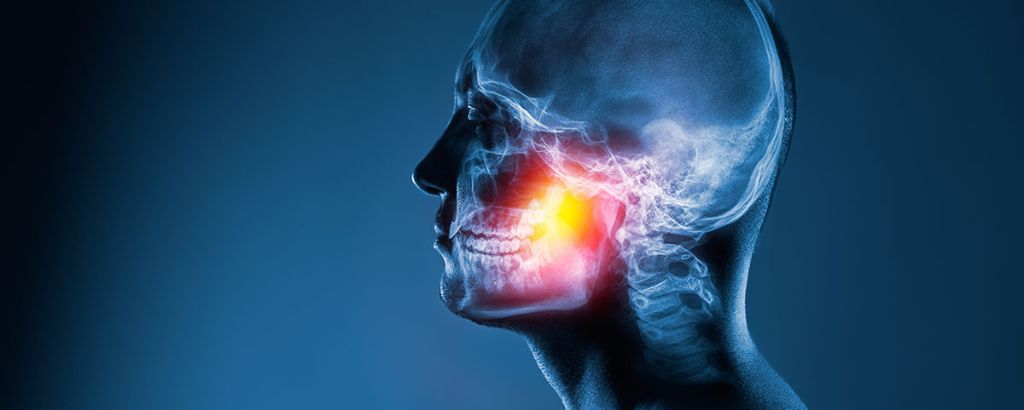TMD Relief with Neuromuscular Dentistry
TMJ Treatment That Targets the Root Cause
Are persistent jaw pain, migraines, or neck stiffness disrupting your daily life? You may be experiencing symptoms of TMJ disorder—a condition that can quietly wreak havoc on your comfort and well-being. At the dental practice of Dr. Avril D’Souza, we offer an advanced, whole-body approach to jaw pain relief through Neuromuscular Dentistry, a breakthrough in diagnosing and treating TMJ dysfunction. If you’ve tried conventional treatments without success, our customized care may be the lasting solution you’ve been searching for.
What Is TMJ?
TMJ stands for the temporomandibular joint—the small but mighty hinge that connects your lower jaw (mandible) to the skull on either side of your head. These joints are essential for chewing, speaking, and yawning. They rely on a delicate balance of muscles, bones, ligaments, and nerves to function smoothly.
When this harmony is disrupted by injury, misalignment, teeth grinding, or stress, the joint can become inflamed or strained. This leads to a range of symptoms collectively known as TMD, or temporomandibular joint disorder.
Understanding TMD: When the Jaw Loses Its Balance
TMD (temporomandibular joint disorder) refers to a group of conditions that cause pain and dysfunction in the jaw joint and surrounding muscles. Symptoms can range from mild discomfort to chronic, debilitating pain. Common signs of TMD include:
- Jaw clicking, popping, or locking
- Pain when chewing or opening the mouth wide
- Frequent headaches or migraines
- Earaches or a sense of fullness in the ears
- Facial muscle fatigue or tenderness
- Neck and shoulder pain
TMD affects millions of people, yet it is often underdiagnosed or mistreated. That’s where neuromuscular dentistry comes in—a specialized field that addresses the root causes of TMD by focusing on how the jaw, muscles, nerves, and bite work together.
How Neuromuscular Dentistry Relieves TMJ Pain
Traditional dentistry tends to focus only on the teeth and bite. In contrast, neuromuscular dentistry takes a broader approach by examining the entire system of muscles, nerves, and joints that support jaw function.
Dr. Avril D’Souza uses state-of-the-art diagnostic technology, such as electromyography (EMG), jaw tracking, and computerized muscle relaxation techniques, to determine your jaw’s ideal position. This helps identify any imbalances or overactive muscles contributing to your TMJ pain.
Once your optimal jaw alignment is identified, we can create a personalized treatment plan that may include:
- Orthotic splints to gently guide the jaw into proper alignment
- TENS therapy (transcutaneous electrical nerve stimulation) to relax muscles and reduce inflammation
- Bite adjustments or restorations to support long-term stability
- Lifestyle and posture coaching to reduce strain on the jaw
This holistic, non-invasive approach targets the source of your TMJ symptoms, not just the surface discomfort.
Why Choose Dr. Avril D’Souza for TMJ Treatment?
Dr. D’Souza is committed to offering patients a path to pain relief beyond quick fixes. With a deep understanding of neuromuscular dentistry, she blends cutting-edge techniques with compassionate care. Every patient receives a comprehensive evaluation and a custom plan tailored to their unique anatomy and symptoms.
Our warm, welcoming practice environment ensures you feel heard and supported throughout your TMJ treatment journey. Whether you’re suffering from long-standing jaw pain or just beginning to notice early signs of TMD, you’re in excellent hands with Dr. D’Souza and her team.
Signs You May Need TMJ Therapy
If you’ve experienced one or more of the following symptoms, it may be time to consider a neuromuscular dentistry evaluation:
- Difficulty opening or closing your mouth
- Frequent jaw clenching or teeth grinding (bruxism)
- Clicking or popping sounds when moving your jaw
- Chronic headaches, primarily upon waking
- Jaw pain that worsens with stress or chewing
TMJ disorders are often progressive; early diagnosis and treatment can prevent further damage and help you reclaim a pain-free life.
FAQs
Q: Can children or teens have TMJ disorders?
A: Yes, TMJ issues can affect younger individuals, especially those with orthodontic problems, facial trauma, or habits like gum chewing or nail-biting. Early intervention through neuromuscular assessment can help prevent worsening symptoms as they grow.
Q: How long does it take to see results from neuromuscular TMJ therapy?
A: Many patients feel relief within a few weeks of starting treatment, especially after TENS therapy or receiving a custom orthotic. However, complete stabilization and long-term improvement may take several months, depending on the case’s complexity and compliance with the treatment plan.
Q: Can TMJ problems come back after treatment?
A: While neuromuscular dentistry aims to provide long-lasting relief, recurrence is possible if contributing habits—like stress clenching, poor posture, or untreated bite issues—are not managed. Regular check-ups, continued use of appliances if prescribed, and lifestyle awareness can help maintain results.
Take the First Step Toward TMJ Relief
Don’t let jaw pain dictate your life. At the dental practice of Dr. Avril D’Souza in Schenectady, NY, we are passionate about helping patients find lasting relief through the power of neuromuscular dentistry. Our advanced TMJ treatments are designed to restore comfort, improve function, and elevate overall quality of life.
Call us today to schedule your comprehensive TMJ evaluation—or fill out our online contact form to get started. Let us help you smile, speak, and live with ease again.

